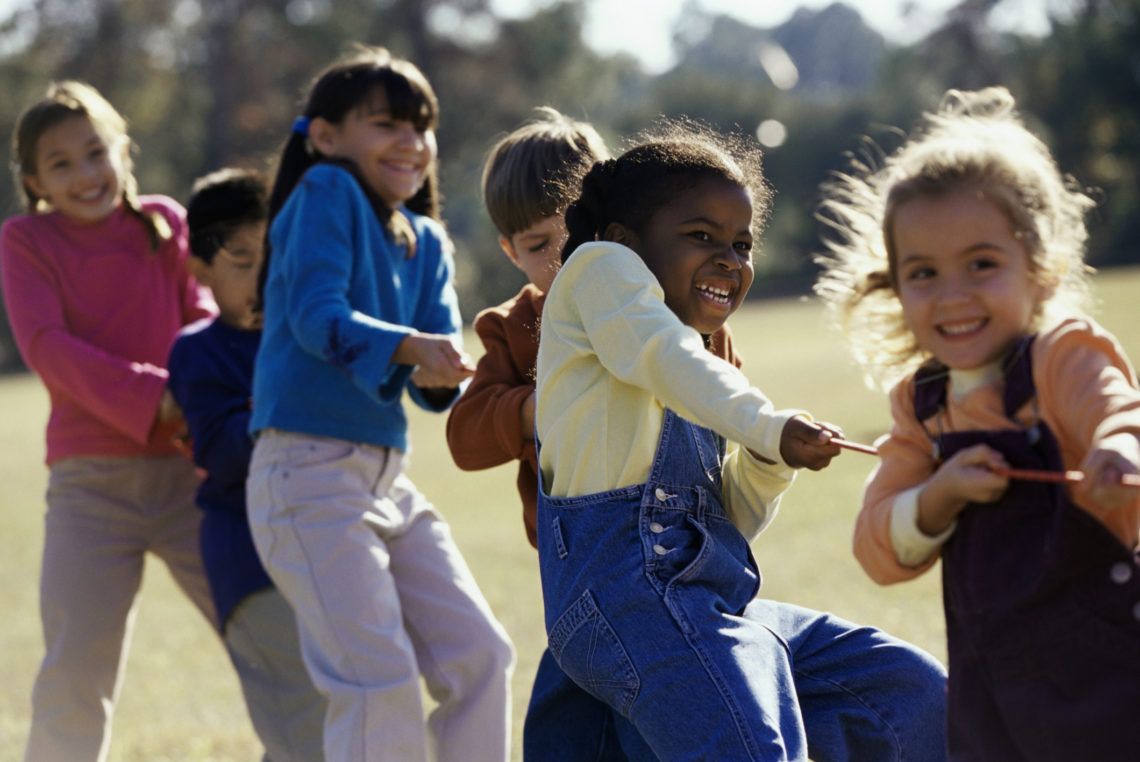
Sesame Street was right, Cooperation makes it happen!
As a mom of four, I can attest that chaos reigns when no one is getting along and everyone is trying to do their own thing. On the flip side, it knocks my socks off to see what can be achieved when everyone focuses their energy and cooperates. Here are a few practical tips for parents to help their kids start combining forces to do great things together.
1. Practice working together before you are in a “real” situation where cooperation is required. That way when it actually comes time for all hands on deck, they’ll be trained professionals. Make it fun by playing board games, where everyone is taking turns, pass around a new or special object, or tag-team read a book. For older kids, specific challenges that reward teamwork (such as working together to follow a recipe and make dinner or cookies) helps teach that everyone has to do their part or it won’t turn out.
2. Explain the rules. Better yet, have your kids be a part of creating the rules. They can only do their part if they know what they are expected to do. They’ll have more buy in if they’ve been a part of the process.
3. Give options, not orders. This is part of the Love & Logic parenting strategy where you become more of a consultant and less of a boss or remote-control parent. “Would you like to listen to music while we get the garage cleaned and sorted or race against the timer to see if we can beat it?” instead of “You’ve got 30 minutes to clean this garage!”
4. Ask questions, and LISTEN. Your child might have an incredibly out-of-the box way of doing something that achieves the end you had in mind, but by a much more fun, exciting, creative route. This also shows you’re willing to cooperate and models compromise for the sake of teamwork.
5. Problem solve/brainstorm together. Instead of simply giving them your solution to the laundry problem, let them come up with their own. Put on your coach’s hat and polyester shorts if you must in order to play the role of facilitator rather than being the referee. Role-play and role-reversal are great tools to get the creative juices flowing and garner participation.
6. Praise positive behavior. When you see cooperation, make a BIG DEAL of it so that they’ll keep on doing it. And when the bickering escalates, remind everyone of the time they got along and worked together to accomplish something amazing to help re-direct them back to being simpatico siblings. Encourage and cheerlead being careful not to exclude or isolate anyone, the goal is to make everyone feel needed and wanted.
7. Inspire them to greatness by helping them look outside of themselves and see the bigger picture. Who doesn’t want to win or play a small role in something bigger than themselves? It’s amazing when I say, “Why don’t you each make Dad a Happy Birthday card” and watch my kids pool their resources and instead turn it into a garage door-wide banner to get the most bang for their buck. Another great idea is to collectively give to a cause. When every one give a little, it adds up to a lot!
8. Tell Stories. Share memories of when you were a kid and had to do your part in order for something good to happen. Or vice versa, what you learned when you didn’t pull your weight.
It’s amazing how adding people and subtracting their divisions ends up multiplying the results.
What are you doing to foster cooperation in your family?





